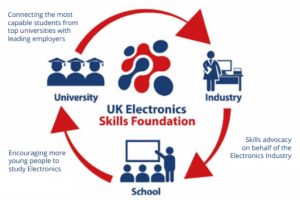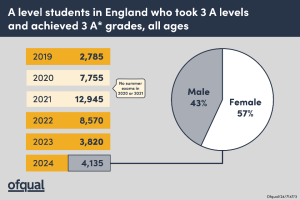
Shubha B, product marketing manager, Tektronix, believes that automation and AI are the key technology trends in T&M. “In my opinion the power of automation enabled by AI will be the future of instrumentation,” she says.
She is excited about the evolving technologies of automation and AI and says that every day there will be new innovations and engineers need to upskill accordingly. Identifying the right tools and their implementation
is challenging and she believes continuous improvement is the key to adapting to market trends. She also admires the company’s encouragement for individuals to upgrade skills.
Her mother was her first role model. “She helped instil a creative and questioning mindset in both me and my sister,” she recalls. Both pursued engineering in electronics and communication at university; coincidently they are both working in the instrumentation industry.
As an undergraduate she set her sights on a “secure job in electronics” but as she progressed she says her goal shifted towards passion and commitment.
Women in STEM
She cites the myth that STEM education and careers are not for women as an early obstacle in her career. Another is that signal processing and maths are not for girls. She believes, however, that once someone can prove their ability, they become the default choice.
The biggest change to the workplace in her career has been more women getting into leadership roles. “This will help change certain biases and encourage young girls to dream big,” she says.
She believes leaders in the electronics industry should allow women to experiment, fail, learn and unlearn. “Girls often have the mindset that they need to be perfect, but electronics is a field which requires a lot of experimentation and an innovative mindset,” she explains. “I think we should encourage women to take on challenges and be prepared for failure.”
Shubha was part of Katalyst, an Indian NGO, which supports women in engineering with mentoring schemes, learning and financial assistance, digital enablement and internships and placements in a variety of industry sectors. “It stands for the economic empowerment of women in engineering, she says, adding that she enjoyed both mentee and mentor roles in the project. “Constant coaching and exposure to IT was the key takeaway as mentee. As a mentor, I make sure the skills of my student are polished and exposed to outside world,” she adds.
The attributes Shubha believes women can bring to the workplace are patience, influence, energy and calmness. “Women have one or more of these built-in qualities and I’ve seen them being a great strength in leadership roles,” she says.
Despite this, there are still obstacles to attracting and retaining women in technology. A flexible work environment would be one resolution. “As women progress in their career, they undergo multiple personal and professional challenges. She needs a good supervisor who will listen, understand and address them continuously,” she believes.
Her advice to bring about change in any company is to form a committee within the organisation to test a hypothesis. “If it turns out to be true, come up with the action plan and make sure they are part of company’s goals,” advises Shubha.
Future engineers
Shubha’s love of electronics shines through. It’s not rocket science, she says. “It’s as fun as adding a few more concepts to maths and physics. Just imagine how the mobile phones, laptops and televisions which are part of our daily lives work! All the magic lies in ones and zeros,” she enthuses. Her advice to girls considering the subject is that they will be amazed and appreciate the beauty of science behind these gadgets.
Reflecting on her own careers, she wishes she had received more financial advice and gained more financial literacy. “I only knew a bit about savings and stock markets. If I was given a formal education on my investment plans, I could have made better choices,” she says. This differentiates men from women, as she says this is typical feedback from female colleagues too, but she has noticed that men tend to be very good at [financial literacy].
As for the next generation of engineers, she feels it is too early to talk about career plans with and for her own son, who is two years old. Her focus is on ensuring a strong fundamental education that later helps him to make better decisions, she says.
 Electronics Weekly Electronics Design & Components Tech News
Electronics Weekly Electronics Design & Components Tech News



